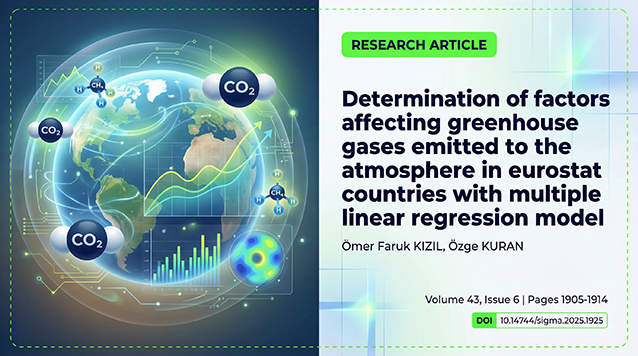2Health Ministry of Turkey, Ataşehir District Health Directorate, İstanbul, 34100, Türkiye
3İstinye University, Department of Health Management, İstanbul, 34010, Türkiye
4Gebze Technical University, Deparment of Bioengineering, Kocaeli, 41400, Türkiye
Abstract
In the global health crisis caused by the COVID-19 pandemic, countries have faced significant challenges in combating the outbreak in terms of healthcare systems and economies. Evaluating the performance of healthcare systems in dealing with pandemics has become a priority for policymakers, healthcare providers, and the public alike. Assessing the performance of healthcare systems during the pandemic is crucial for preparedness and improvements in similar situations in the future. By identifying complex patterns and relationships, machine learning algorithms aim to uncover the relationship between healthcare system indicators and deaths due to the COVID-19 pandemic, using large and intricate datasets. These algorithms utilize various datasets containing demographic information and medical factors to reveal hidden relationships between various variables and disease severity. The objective of this study is to predict COVID-19 death rates for 27 OECD (Organisation for Economic Co-operation and Development) countries spanning the period from 2006 to 2019 using various machine learning regression methods. Health-care system indicators, comprising accessibility, healthcare financing, and healthcare workforce, have been aggregated into three dimensions. The dataset includes COVID-19 death counts per a million-population due to the pandemic. Random forest regression, neural network regression, and Gaussian process regression were employed to forecast COVID-19 death rates, and the predictive capabilities of machine learning regression methods were evaluated using k-fold cross validation. The suitability of the algorithms was assessed using statistical measures such as the coefficient of determination (R²) and root mean square error (RMSE). A high R² value and a low RMSE indicate that Gaussian process regression (GPR) can effectively predict COVID-19 death rates, taking various health indicators into account. Machine learning regression methods have revolutionized our understanding of COVID-19 death rates. Through prediction models, machine learning has empowered healthcare professionals with the ability to forecast death risks for individual patients, guiding decision-making processes and resource allocation. According to the research findings, to enhance the performance of healthcare systems in coping with global pandemics, there is a need to prioritize community-based healthcare services, adopt a social policy approach, encourage the use of advanced technology, ensure the trust of the public and healthcare workers, enhance social support opportunities, emphasize the importance of measures by leaders, and support global governance. Additionally, flexible supply chain plans for the procurement of personal protective equipment have been identified as necessary.
















